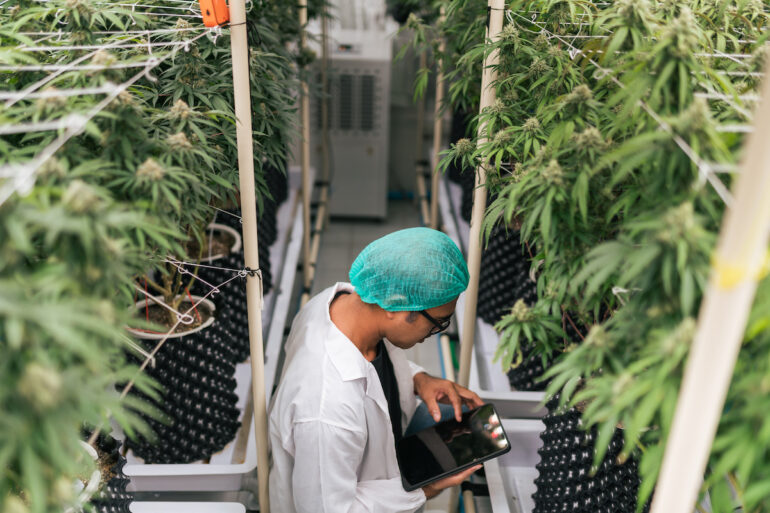With a projected valuation of over 60 billion dollars by the end of 2025, the cannabis industry is growing at an unprecedented rate. As more and more states legalize recreational and medicinal cannabis, entrepreneurs are rushing to get a piece of the action. But with such a fast-moving and ever-changing industry, it can be tough to stay ahead of the curve. That’s where data comes in. By harnessing the power of data-backed science, cannabis entrepreneurs can make more informed decisions and stay ahead of the competition.
What Is Data-Backed Science?
At its core, data-backed science is the use of data to inform and improve scientific decision-making. This can include anything from using data to develop new hypotheses to using data to track the results of experiments.
Data-backed science is used to develop new innovations and marketing strategies in every industry on the planet, including the cannabis industry. By using data-backed science, cannabis entrepreneurs can ensure that their products and services are based on sound evidence and not just guesswork. There are many ways data-backed science improves businesses and the economy in general – below, we share a few examples.
1. Helps businesses develop new products and services.
In the capitalist society we live in, demand is constantly driving innovation. By using data-backed science, cannabis businesses can develop new products and services that meet the needs of their customers. With cannabis becoming more mainstream, customers are looking for new ways to enjoy the benefits of cannabinoids in discreet and convenient ways.
A great example of the need for data-backed science in the cannabis industry applies to cannabinoids derived from cannabis plants other than THC and CBD. The cannabis plant contains hundreds of potentially beneficial (and more potent) cannabinoid compounds that may better serve the medical and recreational benefits of cannabis users.
But with so little known about the effects of these compounds, it can be difficult for businesses to develop products that capitalize on them. This is where data-backed science can help. By using data to study the effects of different cannabinoids, cannabis entrepreneurs can develop new products that target specific benefits.
2. Helps businesses track the results of experiments.
One of the most critical aspects of data-backed science is the ability to track the results of experiments. By tracking the results of experiments, cannabis professionals can better understand how different variables (such as dosage and strain) impact the user experience. This information can then be used to improve the products and services offered by the cannabis industry.
Additionally, by tracking results from experiments, cannabis science can provide a baseline for other researchers to study and build upon. This is especially important in the cannabis industry, where there is still so much to learn about the plant.
When other researchers reach the same conclusions about a particular cannabinoid product and its effects, the cannabis industry will have scientific evidence to stand on that can be used to make informed decisions, get FDA approval, and hopefully gain more support as a better alternative to traditional medications.
3. Helps businesses develop new marketing strategies.
In order for a business to be successful, it needs to have a strong marketing strategy in place. Data-backed science can help cannabis entrepreneurs develop better marketing strategies by giving them a better understanding of the needs and wants of their customers.
For example, if a cannabis business finds that a majority of their customers are looking for products that offer pain relief, they may want to focus their marketing efforts on products that target this benefit. Additionally, by understanding how different cannabinoids affect the user experience, cannabis entrepreneurs can create marketing materials that better explain the benefits of their products.
4. Helps businesses create new business partnerships.
For a cannabis business to succeed, it needs to have strong partnerships. By using data-backed science, cannabis entrepreneurs can develop relationships with other businesses that share the same values.
For example, a cannabis business may want to partner with a business specializing in extraction methods or manufacturing CBD products. By partnering with companies like this, the cannabis business can access better resources and gain a competitive advantage in the industry.
5. Helps businesses understand the legal landscape for cannabis.
One of the biggest challenges facing the cannabis industry is the ever-changing legal landscape. By using data-backed science, cannabis businesses can better understand how the law affects their business.
For example, if a cannabis business finds that they cannot get their products approved by the FDA, they may want to consider pivoting their business to focus on CBD products. Additionally, by understanding the complex legal landscape for cannabis, cannabis professionals can make more informed decisions about running their businesses.
6. To make a contribution to the economy.
As you can imagine, cannabis research positively contributes to the economy — and it appears to do so in better ways than people ever imagined. In states that have had legal weed for quite some time, the economic benefit has been described as “buoyant.”
In places where medical cannabis research isn’t restricted, cannabis businesses have caused millions of dollars to come in – numbers like these show no sign of slowing down, with more and more people becoming medical patients or recreational consumers every year. For states without legal weed and research, they’re missing out considerably on the economic benefits.
In Summary
On the surface, it seems that the industry is growing faster than the research. But, while some barriers still remain, we’re living in a momentous time where not only the public acceptance of cannabis is growing, but also data-backed cannabis research. Perhaps the biggest factor for more research would come from declassifying cannabis as a Schedule 1 drug nationwide – and if we want that to happen, we need to address things head on. That’s (but not limited to) pointing out research barriers, observing the gaps in research, and lastly, supporting groups apart of the agenda so they’re no longer limited to funding or receiving the necessary materials they need to conduct research.

